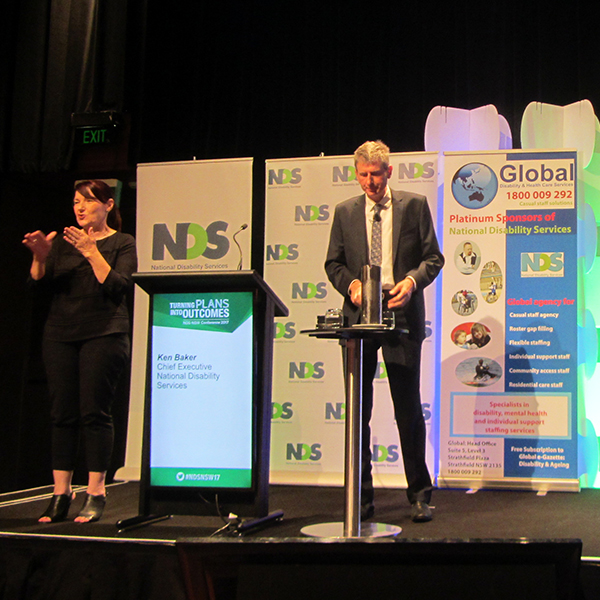More input from service providers essential for a more efficient NDIS, said NDS chief executive, Dr Ken Baker. Speaking to F2L following the release of a National Disability Services (NDS) paper, Baker said the inclusion of service providers was essential for delivering a more effective National Disability Insurance Scheme (NDIS).
He said issues with plans were expected to arise but not to the extent being experienced. “It is a bigger problem as a result of a combination of factors. Namely the volume of planning driven by the quantitative targets set by governments. Combine this with the inexperience of planners who are not always aware of the support services clients have been getting and the exclusion of service providers who have a lot of knowledge in the planning process. Put them together and you have a structural problem that is going to generate an inconsistent quality of plans,” he said.
As to why there is this exclusion of providers in the scheme, Baker said the rationale from the terms of the National Disability Insurance Agency (NDIA) is that service providers may have a conflict of interest by influencing plans. However, Baker does not believe this to be the case. “It can be managed in the same way conflicts of interest are managed within the health system where doctors make referrals to patients to have tests. The danger of the approach taken by the NDIA is that a whole sphere of expertise in a process where you are dealing with a person with a severe and complex disability is excluded. You need someone with a depth of knowledge about the impact of the disability, the service system that is available and about the person themselves.”
He said including service providers would go a long way to resolving the challenges of having adequate staff on the ground to implement the plans. Baker told F2L he was expecting to meet with the NDIA soon to discuss the recommendations but to date had not received any communication from government.
The NDS paper ‘How to get the NDIS on track’, details 24 recommendations on the way forward for the NDIS, warning that the scale and complexity of implementation is placing great pressure on stakeholders, including service providers.
According to Baker, the operating environment is presenting major obstacles, from inadequate pricing to systems that are not holding up in the rapid pace of implementation. He said the NDIS cannot deliver on its promise to people with disability and their families unless there is a strong and sustainable disability services sector. “That sector is at risk,” he said.
The recommendations include proposals to:
- Trial planning partnerships with specialist disability service providers
- Allow participants the opportunity to comment on their plan before it is finalised
- Reduce the high number of questions asked of participants during the assessment and planning process
- Establish an emergency response system by extending the NDIS 1800 number to 24 hours a day. Forming response panels of disability support providers in all regions
- Strengthen the NDIS focus on employment
For more information visit: www.nds.org.au

